Lewis Hamilton's element of surprise 'sucks' for Nico Rosberg
- Published
- comments
Only poor reliability or bad luck, it seems, can now stop Lewis Hamilton winning the 2014 Formula 1 world championship.
A swashbuckling victory in the US Grand Prix, Hamilton's 10th of the season, means he now has a 24-point lead over Mercedes team-mate Nico Rosberg.
Given Mercedes' advantage over the rest of the field, the two can be expected to finish one-two in both remaining races, in Brazil next weekend and Abu Dhabi a fortnight later.
Even with double points at the last race, Hamilton can finish second to Rosberg in both remaining events and still win the title.
Right now, though, you would not put much money on Rosberg beating Hamilton at all, let alone twice in a row, such is the rich vein of form in which the Englishman finds himself.

Hamilton can come second to Rosberg in the final two races of the season but he says he has every intention of winning both
His superb win at the Circuit of the Americas in Austin, Texas, on Sunday was his fifth in a row - that is more consecutively than Rosberg has won at all through the whole season. It was Hamilton's 10th of the year, to Rosberg's four.
The German simply seems to have no answer to his team-mate.
In his BBC Sport column this race, Hamilton explained his impressive run by saying that he had "kind of turned it up a notch".
It certainly looks that way. After the controversial collision between the two in Belgium in August, Hamilton has been irresistible. And Austin was the third time in five races that Hamilton has come from behind to pass and beat Rosberg.
That has to hurt - and, judging from Rosberg's demeanour afterwards in Austin, it did.
"It sucks, it really does," he said, "but that's the way it is. It's the worst possible way to lose, getting passed like that, with the same car."
Rosberg had looked and sounded confident in Texas, after the three-week break following the last race in Russia, but how much of it was show?
In truth, Hamilton looked quicker throughout the weekend. Rosberg beat him to pole position by a substantial margin, but Hamilton had hit trouble with his brakes.
As he tracked Rosberg in the opening stint of the race, consistently staying within a second despite the loss of downforce inherent in being so close behind, it was clear Hamilton was quicker.
But he saved his attack until after the first pit stops, when he could exploit the extra grip of fresh tyres - a help in the sort of uber-late-braking manoeuvre which he probably already knew he would need to take the lead.
Hamilton was remorseless in his determination to grab the race by the throat. Nearly three seconds behind after the stops, on consecutive laps the gap came down like this - 2.5secs, 1.7, 1.4, 0.8.
It stabilised there for two further laps before Hamilton went for the jugular.
The fastest first sector of the race to that point through the demanding Esses section got him closer than before as they headed on to the long main straight.
Even so, he did not look quite close enough, but Hamilton has always been brilliant on the brakes and he went for it anyway.
The move caught Rosberg by surprise - already slowing for the Turn 12 hairpin, he made a brief initial move to defend, before realising that would be against the rules banning a change of line in the braking zone.
Hamilton kept coming, held Rosberg out wide on the entry, claimed the apex and then ran his team-mate out of track on the exit.
It was an aggressive move - a "slap in the face" as BBC F1 co-commentator David Coulthard described it - but as usual with Hamilton, fair as well.
Just as in Bahrain, Spain, Hungary, Italy and Japan, in varying circumstances each time, Hamilton had proved himself the superior race driver.
Afterwards, BBC F1 presenter Suzi Perry suggested to Hamilton that it was a "sublime performance".
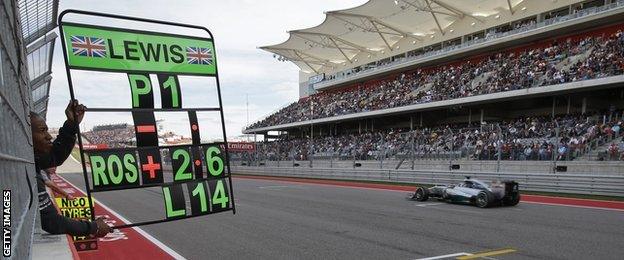
Lewis Hamilton's US GP win takes him to fifth in the all-time F1 winners' list, tied with Fernando Alonso
"You put it pretty well," he said. "It felt pretty special, to be able to fight through and get to the front, especially with all the pressure, three races to go.
"I didn't want him to get comfortable with a two-second lead, so it was about really pushing and keeping the pressure on, so I was really attacking in that first stint.
"It was a question of how long the tyres would last, and the car was a bit oversteery. I took some wing out at the pit stop and after that it was great to drive.
"He didn't really block that much - maybe he wasn't expecting it. I could have braked a bit later but I didn't want him to cut back inside so I made sure I kept him on the outside all the time."
In terms of natural justice, who could now dispute that it would be a travesty were Hamilton to lose this title, whatever happens in the last two races?
But sport does not work like that.
Just ask Fernando Alonso, whose tally of 32 career wins Hamilton has equalled, tying them in fifth place in the all-time list. Alonso was arguably the moral champion in both 2010 and 2012, only to lose out. And Hamilton, to whom a similar thing happened in his maiden season in 2007, knows this only too well.
Were it not for those controversial double points in Abu Dhabi, Hamilton might be able to feel a bit more relaxed, but the extra jeopardy is clear to everyone involved.
"I am just enjoying the moment," Hamilton said. "I have two races coming up and I am going to be attacking just like I have the last five or 10 races.
"I want to get those good points but I want to win. It's not just about starting from pole. Races like today feel even better, you have to outsmart the guy ahead of you."
It was a terrific race, with exciting battles right through the field, and it was sorely needed after a weekend of frayed tempers following the collapse of the Marussia and Caterham teams.
The surviving smaller teams were outspoken in their criticism of the financial split in F1 over the course of the weekend, and Force India deputy team principal Bob Fernley went as far as to say they were "considering" boycotting the race in protest, along with Lotus and Sauber.
It was always going to be a hollow threat - "if you threaten something, you have to be prepared to go through with it," as Red Bull team principal Christian Horner said - and it left Fernley looking a bit foolish when his own team boss, as well as those of Lotus and Sauber, said they were considering no such thing.
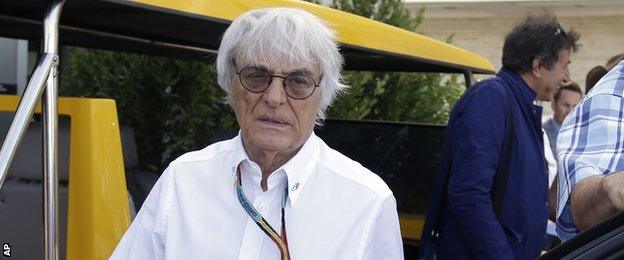
Bernie Ecclestone admitted during the US GP weekend that some of the sport's financial woes were "probably" his fault
Fernley was clearly trying to fire a shot across Bernie Ecclestone's bows, to try to force F1's impresario to do something to change things, make life a little easier for the smaller teams. Although whether Ecclestone would have paid any attention is another matter.
He ought to, though. It has been clear for some years that something needed to be done about easing the plight of the smaller teams. Now two have failed, to lose any more would be potentially catastrophic.
There were discussions about what could be done throughout the weekend, and more will follow in the coming days.
People have mentioned cutting the costs of engines - which has doubled this season with the otherwise admirable and impressive new turbo hybrids - or giving the smaller teams a greater slice of the overall pie. But a solution will not surrender itself easily, for in helping the smaller teams, someone else will have to lose out financially.
It is a time for forceful and wise leadership, selfless and magnanimous actions, as many of those in positions of authority accept.
The problem, though, is that in F1 self-interest and competitiveness usually win the day.
- Published2 November 2014
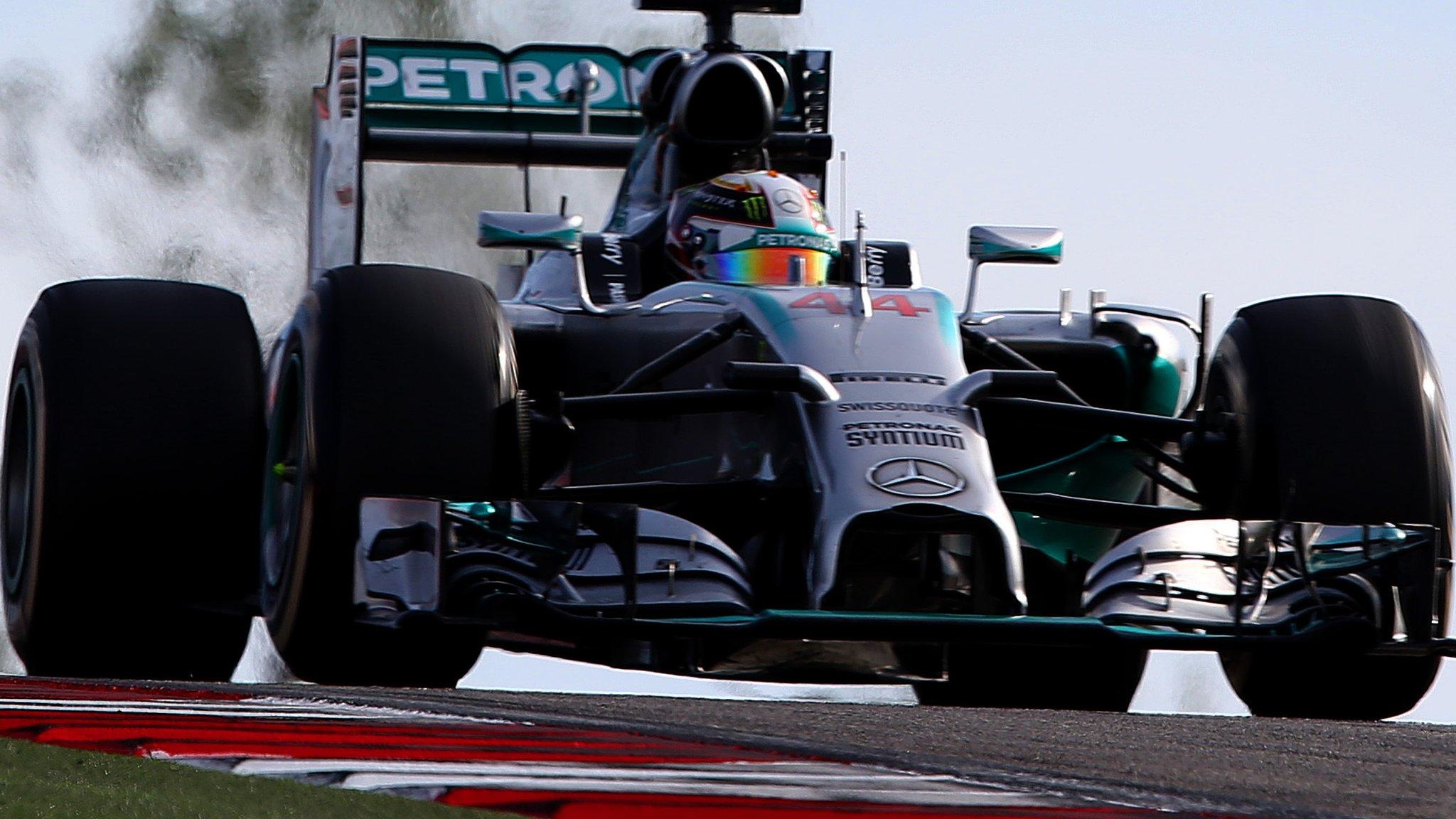
- Published3 November 2014
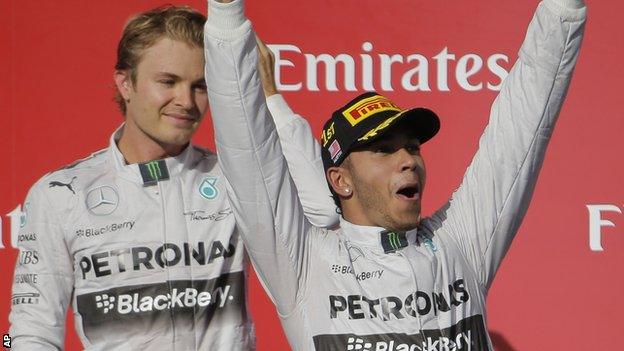
- Published2 November 2014
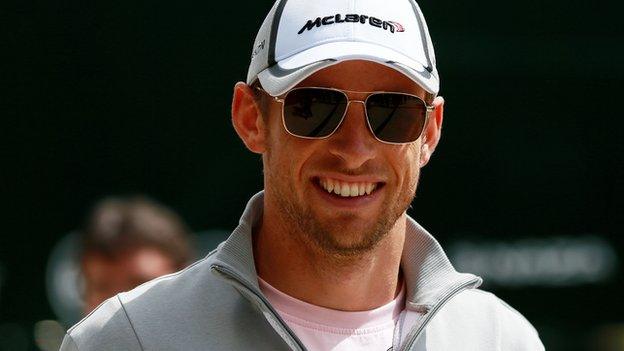
- Published1 November 2014
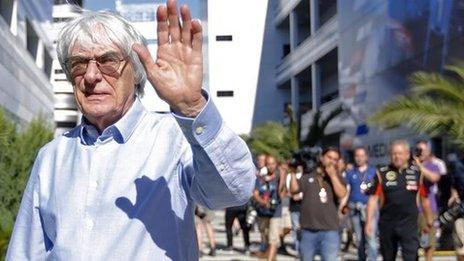
- Published1 November 2014
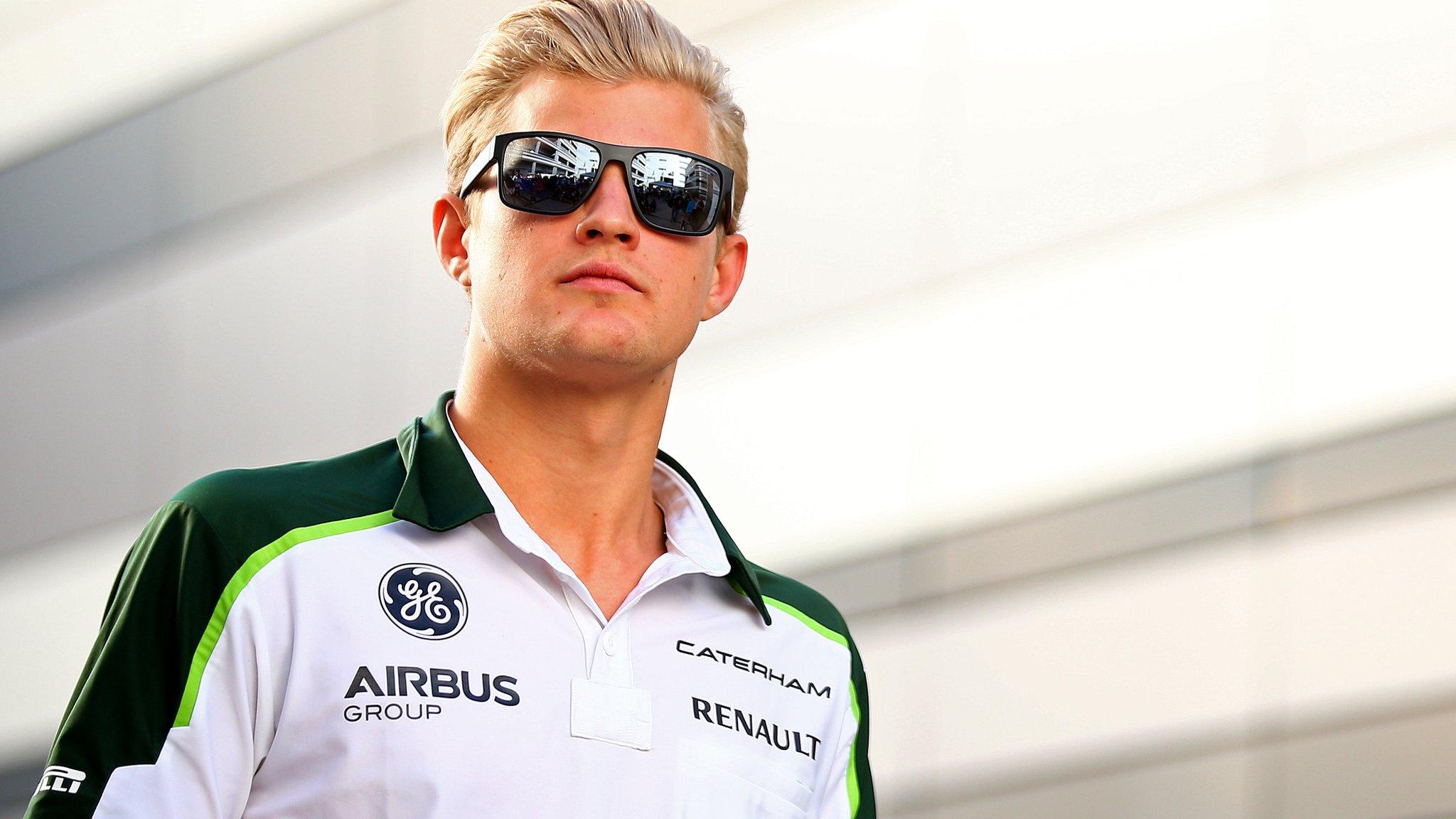
- Published30 October 2014
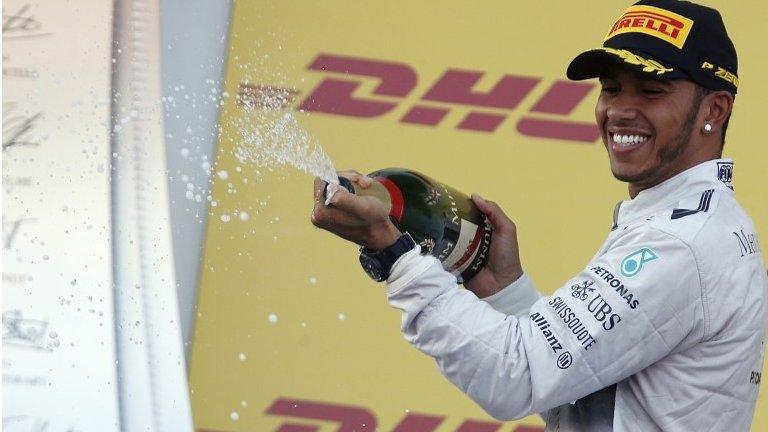
- Published26 February 2019
